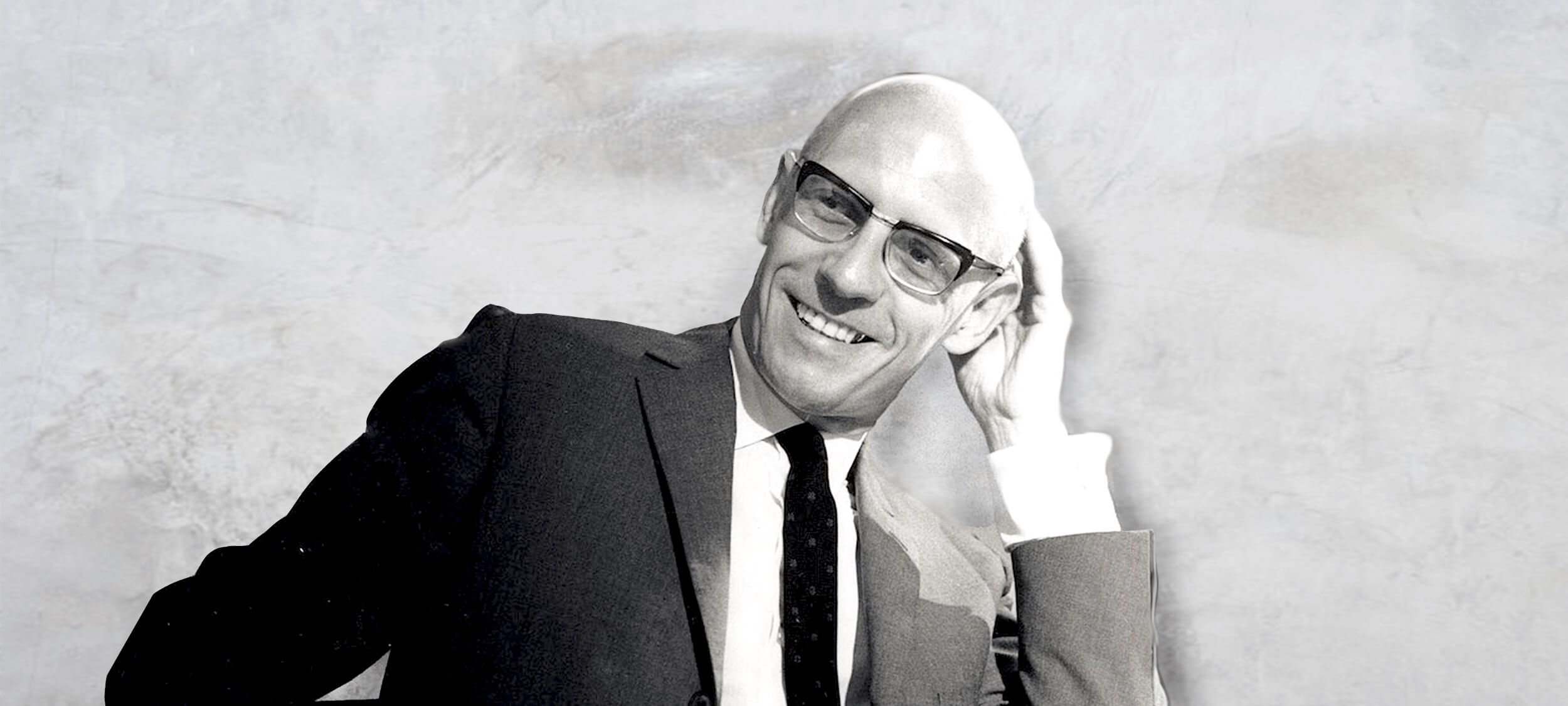
Big Thinker: Michel Foucault
Big thinkerPolitics + Human RightsRelationships
BY The Ethics Centre 13 JUL 2017
Michel Foucault (1926—1984) was a French philosopher, historian and psychologist whose work explored the underlying power relationships in a range of our modern institutions.
Given Foucault’s focus on the ways institutions wield power over us, and that trust in institutions is catastrophically low around the world today, it’s worth having a look at some of the radical Frenchman’s key ideas.
History has no rhyme or reason
At the centre of Foucault’s ideas is the concept of genealogy – the word people usually use when they’re tracing their family history. Foucault thought all of history emerged in the same way a family does – with no sense of reason or purpose.
Just like your existence was the result of a bunch of random people meeting and procreating over generations, he thought our big ideas and social movements were the product of luck and circumstance. He argued what we do is both a product of the popular ways of thinking at the time (which he called rationalities) and the ways in which people talked about those ideas (which he called discourses).
Today Foucault might suggest the dominant rationalities were those of capitalism and technology. And the discourse we use to talk about them might be economics because we think about and debate things in terms their usefulness, efficiency and labour saving. Our judgements about what’s best are filtered through these concepts, which didn’t emerge because of any conscious historical design, but as random accidents.
You might not agree with Foucault. There are people who believe in moral progress and the notion our world is improving as time goes on. However, Foucault’s work still highlights the powerful sense in which certain ideas can become the flavour of the month and dominate the way we interpret the world around us.
For example, if capitalism is a dominant rationality, encouraging us to think of people as economic units of production rather than people in their own right, how might that impact the things we talk about? If Foucault is right, our conversations would probably centre on how to make life more efficient and how to manage the demands of labour with the other aspects of our life. When you consider the amount of time people spend looking for ‘life hacks’ and the ongoing discussion around work/life balance, it seems like he might have been on to something.
But Foucault goes further. It’s not just the things we talk about or the ways we talk about them. It’s the solutions we come up with. They will always reflect the dominant rationality of the time. Unless we’ve done the radical work of dismantling the old systems and changing our thinking, we’ll just get the same results in a different form.
Care is a kind of control
Although many of Foucault’s arguments were new to the philosophical world when he wrote them, they were also reactionary. His work on power was largely a response to the tendency for political philosophers to see power only as the relationship between the sovereign and the citizen – or state and individual. When you read the works of social contract theorists like Thomas Hobbes and Jean Jacques Rousseau, you get the sense politics consists only of people and the government.
Foucault challenged all this. He acknowledged lots of power can be traced back to the sovereign, but not all of it can.
For example, the rise of care experts in different fields like medicine, psychology and criminology creates a different source of power. Here, power doesn’t rest in an ability to control people through violence. It’s in their ability to take a person and examine them. In doing so, the person is objectified and turned into a case (we still read cases in psychiatric and medical journals now). This puts the patients under the power of experts who are masters of the popular medical and social discourses at the time.
What’s more, the expert collects information about the patient’s case. A psychiatrist might know what motivates a person’s behaviour, what their darkest sexual desires are, which medications they are taking and who they spend their personal time with. All of this information is collected in the interests of care but can easily become a tool for control.
A good example of the way non-state groups can be caring in a way that creates great power is in the debate around same sex marriage. Decades ago, LGBTI people were treated as cases because their sexual desires were medicalised and criminalised. This is less common now but experts still debate whether children suffer from being raised by same sex parents. Here, Foucault would likely see power being exercised under the guise of care – political liberties, sexuality and choice in marital spouse are controlled and limited as a way of giving children the best opportunities.
Prison power in inmate self-regulation
Foucault thought prisons were a really good example of the role of care in exercising power and how discourses can shape people’s thinking. They also reveal some other unique things about the nature of power in general and prisons more specifically.
In Discipline and Punish: The Birth of the Prison, Foucault observed a monumental shift in how society dealt with crime. Over a few decades, punishments went from being public, violent spectacles like beheadings, hangings and mutilations to private, clinical and sterile exercises with the prison at the centre of it all. For Foucault, the move represented a shift in discourse. Capital punishment and torture were out, discipline and self-regulation were in.
He saw the new prison, where the inmates are tightly managed and regulated by timetables – meal time, leisure time, work time, lights out time – as being a different form of control. People weren’t in fear of being butchered in the town square anymore. The prison aimed to control behaviour through constant observation. Prisoners who were always watched, regulated their own behaviour.
This model of the prison is best reflected in Jeremy Bentham’s concept of the panopticon. The panopticon was a prison where every cell is visible from a central tower occupied by an unseen guard. The cells are divided by walls so the prisoners can’t engage with each other but they are totally visible from the tower at all times. Bentham thought – and Foucault agreed – that even though the prisoners wouldn’t know if they were being watched at any moment, knowing they could be seen would be enough to control their behaviour. Prisoners were always visible while guards were always unseen.
Foucault believed the panopticon could be recreated as a factory, school, hospital or society. Knowing we’re being watched motivates us to conform our behaviours to what is expected. We don’t want to be caught, judged or punished. The more frequently we are observed, the more likely we are to regulate ourselves. The system intensifies as time goes on.
Exactly what ‘normality’ means will vary depending on the dominant discourse of the time but it will always endeavour to reform prisoners so they are useful to society and to the powerful. That’s why, Foucault argued, prisoners are often forced to do labour. It’s a way of taking something society sees as useless and making it useful.
Even when they’re motivated by care – for example, by the belief that work is good for prisoners and helps them reform – the prison system serves the interests of the powerful in Foucault’s eyes. It will always reflect their needs and play a role in enforcing their vision of how society should be.
You needn’t accept all of Foucault’s views on prisons to see a few useful points in his argument. First, prisons haven’t been around forever. There are other ways of dealing with crime we could use but choose not to. Why do we think prisons are the best? What are the beliefs driving that judgement?
Ethics in your inbox.
Get the latest inspiration, intelligence, events & more.
By signing up you agree to our privacy policy
You might be interested in…
Opinion + Analysis
Climate + Environment, Relationships, Science + Technology
From NEG to Finkel and the Paris Accord – what’s what in the energy debate
Opinion + Analysis
Business + Leadership, Politics + Human Rights
Who’s afraid of the strongman?
Opinion + Analysis
Relationships
How to respectfully disagree
Opinion + Analysis
Health + Wellbeing, Politics + Human Rights




